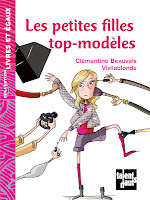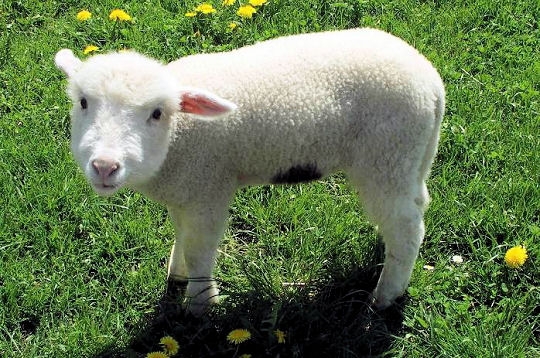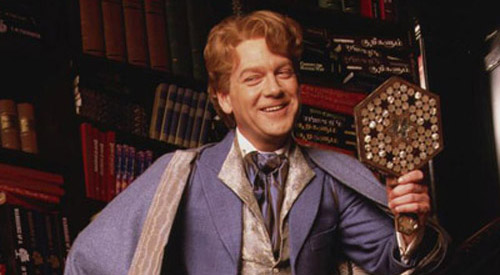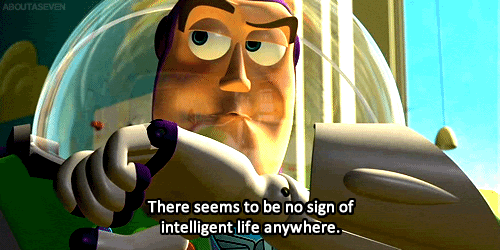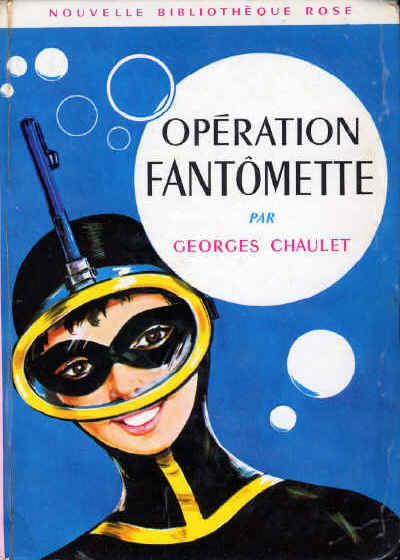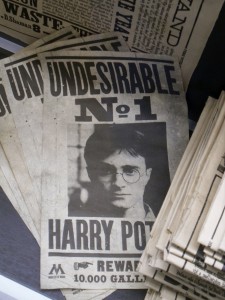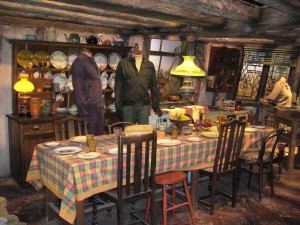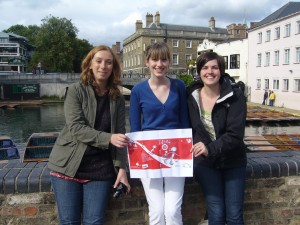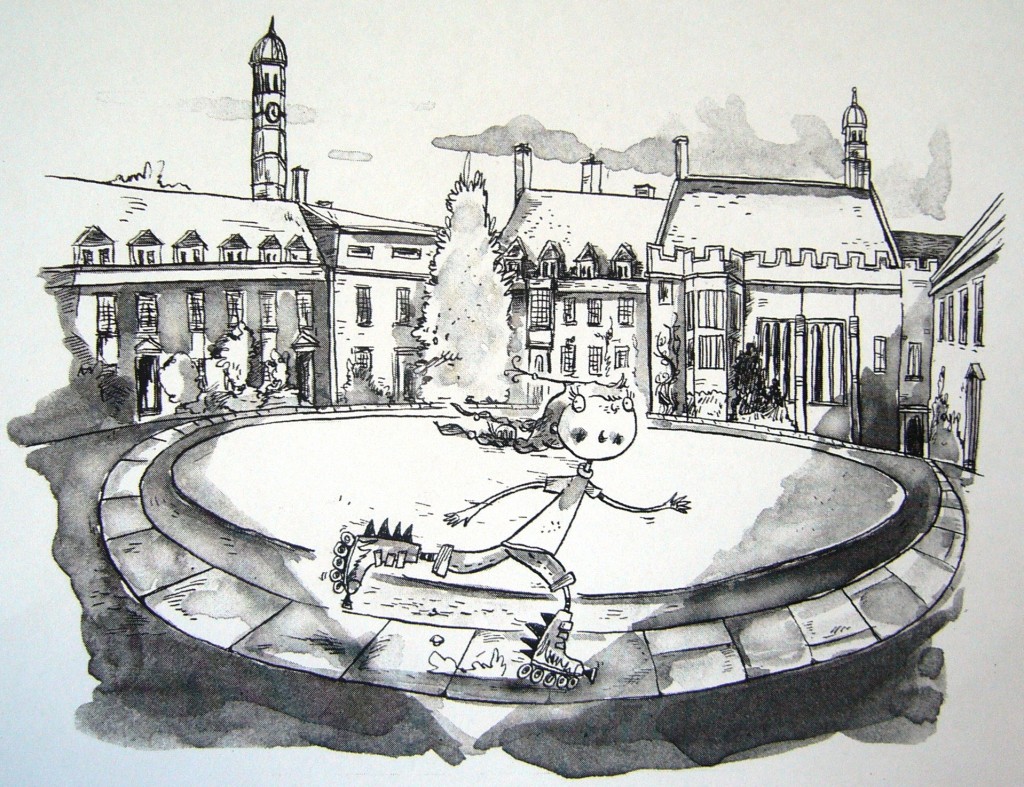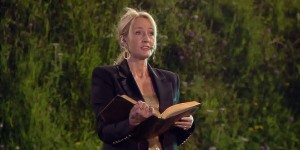You don’t mention the author’s intentions in literary criticism; it’s taboo. The Qwerty fairy is allergic to it. Try to write ‘what the author is saying here…’ and your mouse will bite you. The Text can say something; but the author is dead.
Yes, dead – we’ve got Roland Barthes to blame the murder on, but we’re all complicit.
Anyway, the big problem that we children’s literature scholars – and writers – face is that this convenient death of the author becomes extremely problematic when dealing with children’s books. A children’s book politicises, socialises, encultures the child reader – a reader almost devoid of powers on the public scene. With that in mind, can the responsible critic leave aside this aspect of children’s literature and not take into account the authors’ and creators’ intentions when studying a children’s book?
Two articles I read recently made me want to explore that question a little bit further.
But first, an anecdote.
Last summer, I was on a school visit in France to talk about one of my children’s novels, Les petites filles top-modèles, and the teacher in one of the classes had made them think really hard about the book. The young teens (they were 11-12 years old) had tons of questions – so many that I had to leave before they could ask them all. Just as I was getting ready to go, the teacher said to the kids:
It’s a shame you didn’t have time to ask Miss Beauvais all the questions you’d prepared. For instance, you were all very interested to learn more about the suicide scene.
Me:
 |
| The WHAT scene?? |
Just to contextualise things a little bit, Les petites filles top-modèles is a humorous teenage novel about a young top-model girl who wakes up one morning with a pimple on her nose. There’s as much suicide in there as there are homicidal maniacs in Spot Bakes a Cake.
At least, that’s what I thought.
Because – and I’m going to try not to spoil my own book, which would be a little bit silly – there is indeed a scene where my young heroine, Diane, throws herself into a canal. But…?!
Me:
But it’s not at all a suicide attempt, it’s like, well, sort of like a rite of purification, a, a… a baptism, a kind of rejuvenating ritual with a spiritual slant more or less inspired from St John the Baptist but more fun and girly… you see?!
Nope, they didn’t. Because for them, it was a suicide attempt – a failed one, a failed and funny one, but a suicide attempt all the same. That’s how they’d read it.
I was a little spooked, because suicide isn’t a theme I’d joke about, especially in children’s literature – I can’t stand the countless irresponsible teenage novels that present it as a glamorous add-on to adolescent crises. I’d never, ever do that.
But whether or not I’d intended to do it, that’s how they’d interpreted it.
Now, the Spooked Author has two ways of decoding the situation:
1) They didn’t read my book properly.
2) I didn’t write my book properly.
The first one is the more tempting, of course. In high school I had an English teacher who was also a cursed poet and kept saying things like ‘Readers are stupid, you know; they’re incapable of understanding what I mean when I say this or that.’ As a fledgling writer with no readers at the time, I would happily have strangled him with his eternal bow-tie. But I digress.
Personally, I tend to opt for the latter: that’s it, I completely failed to ‘make them see’ what I ‘intended to convey’. I didn’t have bad intentions, but I was misinterpreted. I messed up. What a loser.
In his academic article on ‘Intention’, in Keywords For Children’s Literature (edited by Philip Nel & Lissa Paul), Philip Pullman tackles this painful question. He notes that there is a huge chasm between the general public, who is constantly in demand of authorial intentions (‘How did you get the idea for this book?!’) and the English literature scholars who would happily disembowel themselves with their copy of The Riverside Chaucer rather than ask the dreaded question.
As usual, the right attitude is probably somewhere in between, and in this case, as Pullman puts it with his usual elegance, the author never really has intentions; it is probably more accurate to call them hopes.
‘All we can honestly intend to do is try‘
In short, whether or not we’re intending to do something specific, it’s very likely that it’s going to fail. But thank goodness that’s the case, because that allows the reader to emerge as an active participant in the reading event. The reader’s interpretation may be far-fetched or crazy or boring but it constructs the text. This interpretation depends on dozens of things, from the context of reading to the community of readers through to what basic background knowledge of the theme the reader has. It depends, of course, on the worries and desires of every particular reader, and that’s something the author can never anticipate.
So my teens who got all intrigued by the ‘suicide scene’ were probably predisposed to ‘see’ suicide in places that I would never think about.
The author’s intention can be ‘good’ but have disastrous results, and we can’t hide behind the notion that we ‘didn’t do it on purpose’. As Pullman says, in any other circumstance – if I accidentally drop a brick from my window and it falls on my neighbour’s car – whether or not I did it on purpose doesn’t change anything to the state of the windscreen.
| Oh but I didn’t do it on purpose! |
It’s also Sartre’s vision in What Is Literature?, and maybe one day I’ll get into that on this blog.
Anyway, the children’s writer, in my view, has a specific responsibility towards her readership and must think about this distance between intention and interpretation. But only to a certain extent. Because the reader, especially the young reader, can’t be seen as a monolithic, predictable entity. We have to accept – and celebrate – the fact that the reading experience, for better and for worse, will be full of unplanned interpretations.
That’s all for now. In the next blog post on this topic I’ll talk about the second article that made me think today- about the sometimes tense relationship between author and literary critic…

